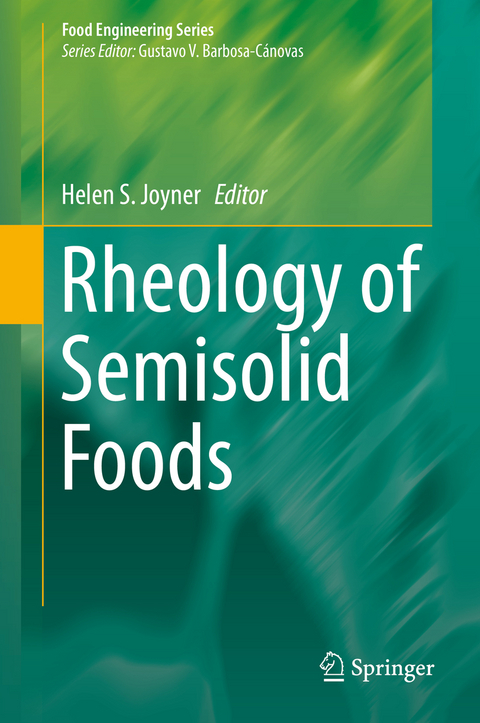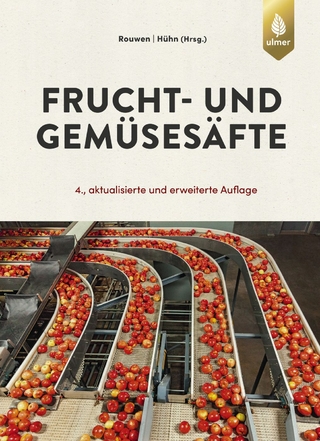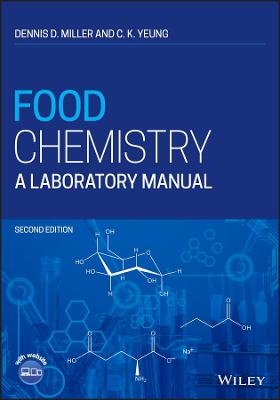
Rheology of Semisolid Foods
Springer International Publishing (Verlag)
978-3-030-27133-6 (ISBN)
Rheology of Semisolid Foods comprehensively covers the rheological behaviors and rheological testing of semisolid foods. Individual chapters focus on semisolid food structure, rheological and sensory behaviors, testing of various semisolid food behaviors, and factors that impact those behaviors. Special concentration is given to the relationships among semisolid food structures and mechanical properties and textures. The second section of this work presents a series of case studies on acid milk gels and yogurt which provide a practical illustration of the concepts presented in the preceding chapters, allowing readers to gain both conceptual knowledge of semisolid food rheology and an understanding of how that knowledge can be applied to a food system of choice.
Individual components, processing parameters, and storage conditions can dramatically impact food functional properties and textures. Changing any of these factors can cause significant microstructural alterations resulting in undesirable changes in product stability, functionality and texture. The lack of knowledge of how these factors impact the final food properties makes development of new food products a process of empirical trial rather than intentional design. A fundamental understanding food structure, function and texture relationships is critical for targeted design of food products. This text is a valuable reference for researchers looking to gain an understanding of how rheology works in semisolid food design and processing.
Dr. Helen Joyner is an Associate Professor at the University of Idaho in the School of Food Science. Her research focuses on rheological and tribological behavior of food products, with the goal of determining relationships between structure, mechanical/friction behavior, and sensory texture. She has over ten years of experience in evaluation of rheological and tribological behaviors of fluid, semisolid, and solid food products. He current focus in on dairy products, although she has worked with many other products, including bread, sauces, gels, and emulsions. While her lab focuses on fundamental rheology research, Dr. Joyner also works on applied research with industry, as well as provides contract testing services for a wide variety of food products. Dr. Joyner teaches graduate and undergraduate courses in Food Engineering, Food Quality Management, Evaluation of Dairy Products, and Food Rheology. She is an active member of the Institute of Food Technologists, the American Dairy Science Association, and the Society of Rheology, and has served in multiple volunteer roles for these organizations. She is currently the faculty advisor for the Washington State University/University of Idaho Milk Processors' Association product development team and Collegiate Dairy Product Evaluation team. Dr. Joyner has won multiple awards for her research and teaching, as well as for her involvement in professional societies, including the North Carolina State University CALS Outstanding Young Alumna Award, the Journal of Texture Studies Rising Stars in Texture Research Award, the North American Colleges and Teachers of Agriculture Teaching Award of Merit, and the Institute of Food Technologists Dairy Foods Division Outstanding Volunteer Award.
Part I: Semisolid Food Rheology.- Introduction: Measuring rheological properties of foods.- Semisolid foods: an overview.- Rheological testing for semisolid foods: Traditional rheometry.- Rheological testing for semisolid foods: Large amplitude oscillatory shear.- Rheological testing for semisolid foods: Tribology.- Rheology and semisolid food processing.- Structuring semisolid foods.- Rheological changes in semisolid foods during storage.- Sensory and oral processing of semisolid foods.- Relationships among semisolid food microstructures, rheological behaviors, and sensory attributes.- Part II: Case Studies.- Case study 1: impact of hydrocolloids on yogurt rheology, structure, and texture.- Case study 2: Yogurt tribology.- Case study 3: Impact of processing parameters on yogurt rheology.- Case study 4: Changes to yogurt rheological properties during storage.
| Erscheinungsdatum | 24.11.2019 |
|---|---|
| Reihe/Serie | Food Engineering Series |
| Zusatzinfo | IX, 413 p. 145 illus., 105 illus. in color. |
| Verlagsort | Cham |
| Sprache | englisch |
| Maße | 155 x 235 mm |
| Gewicht | 793 g |
| Themenwelt | Technik ► Lebensmitteltechnologie |
| Schlagworte | Food Function • Food Rheology • food structure • Novel Rheometry • Semisolid Foods |
| ISBN-10 | 3-030-27133-1 / 3030271331 |
| ISBN-13 | 978-3-030-27133-6 / 9783030271336 |
| Zustand | Neuware |
| Haben Sie eine Frage zum Produkt? |
aus dem Bereich


